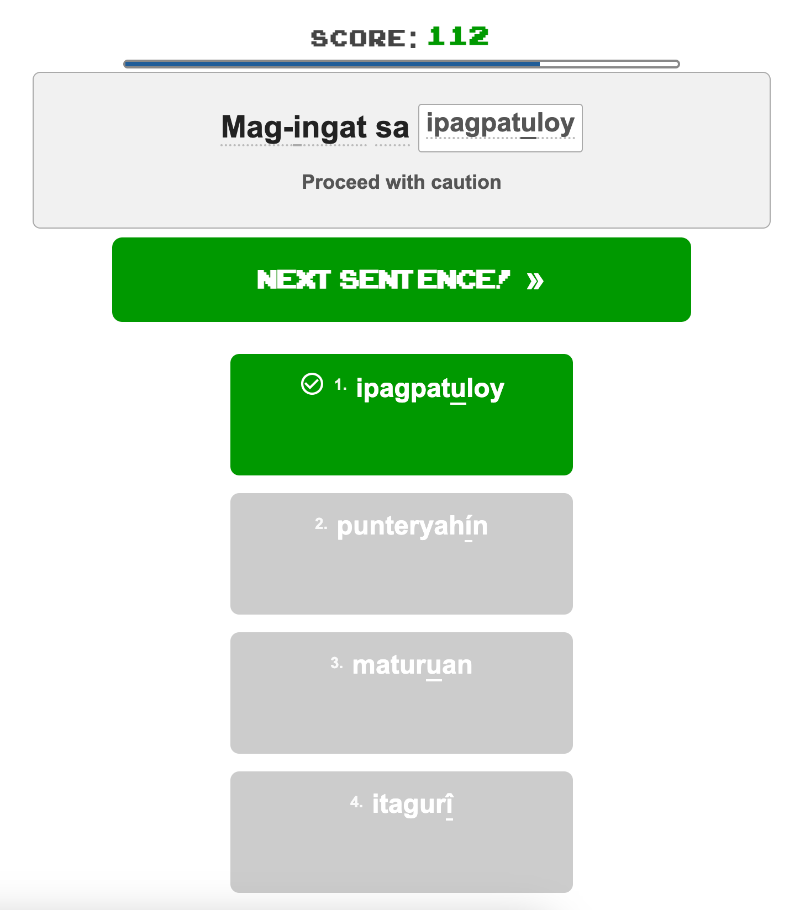"At" is like a general-purpose Tagalog conjunction, so it can mean "sapagk
át/kasi/dahil (because)" or just the usual "and". We use it all the time. It may be translated into English according to however it makes sense, but in Tagalog we just make an automatic deduction as to what it means. For example:
M
áuna ka na AT s
úsunod na lang ako. = Go ahead AND I'll just follow.
Mauna ka na AT hin
íhint
áy ka na ni Maria. = Go ahead BECAUSE/AS Maria is already waiting for you.
Mauna ka na AT pag hind
î, baka mag
alit sa iyo si Maria. = Go ahead OR else/if not, Maria might get mad at you.
Huwág mong panÃ``niwal
aan si Gina at/sapagk
át/kasi/dahil sinungaling iyán. - Although using any of the 4 choices of conjunctions would not change the meaning of the sentence, I think we are likely to use "at" in this case. Maybe it's just like the tendency to use "as" more than "because" in the English translation.
>> "Mag-ingat sa ipagpatuloy" means "Proceed with caution"? Siguro "sa pagtulóy"?
"Mag-ingat sa ipagpatuloy" means "Be careful of to continue something", so the use of "ipagpatuloy" there is wrong. You are right about "Mag-ingat sa pagtuloy" (lit. Be careful of/about continuing/proceeding) as the correct way to say "Proceed with caution". We can also use "p
ágtutul
óy" if it's about continuing something that has already begun.
Your Tagalog is very good, although quite formal. Rarely would we say "mar
ahil" and practically we don't use "mas
ásamb
ít" colloquially anymore. For "marahil", we would use "sig
uro (maybe)" or "malam
áng (most/more likely)" depending on what we really mean. For "masasambit", we would say "sasab
ihin".
Sig
úro/Malam
áng kung akó ang nags
abi nitó, itó malam
áng ang sasab
íhin/sin
abi ko. - The "sinabi" option is just to match the tense of "nagsabi" in the first clause. However, "sasabihin" is also correct and might be preferred instead, since the mood is subjunctive.
Also, although "naglalaro" means "playing", we use it for traditional or standard games, including board games and sports. When playing puzzle games like this "game" you were answering or sudoku or crossword, etc., we would instead say "sin
ásagut
án (inf. sagut
án - to answer something, as in filling out forms)". For jigsaw puzzles, we would use "bin
úb
uò (completing/assembling/constituting) (inf. buu
ín)".




